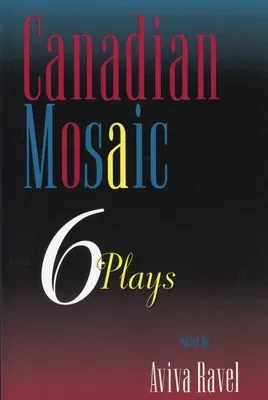The plays in this anthology have been selected to reflect the wide
spectrum of ethnic communities in this country, and to illuminate the
often painful world their members inhabit as outsiders to mainstream
Canadian life. The plays explore cultural values, dual loyalties, and
problems of adjustment.
Path with No Moccasins, by Shirley Cheechoo: A young Cree girl endures
life at a residential school, and later heals herself. The play raises
issues of identity, discrimination, and self-destruction, but ends
positively. (1 character; four scenes)
The Tale of a Mask, by Terry Watada: Immigration to Toronto leaves a
Japanese wife cut off from society, while her husband works at a
low-paying job, and her son defies authority at home and at school. (5
characters; twenty-one scenes)
Dance Like a Butterfly, by Aviva Ravel: Tillie, a Jewish octogenarian,
reveals vivid memories of her past, and looks forward to the fulfilling
days ahead, in a journey that leads us to re-examine our conceptions of
old age. (6 characters; thirteen scenes)
No Man's Land, by Rahul Varma: They left East India for a better life
for their daughter, but Qaiser and Jeena are cheated and exploited by
employers and landlords; they sacrifice everything, including Jeena's
health. (8 characters; twenty-two scenes)
Going Down the River, by Kevin Longfield: Racial tension underlies the
discussions of a black principal, a young white teacher, and the black
mother of a problem son. The principal's father acts as her conscience.
(4 characters; one act)
Supplementary information for each play includes a glossary, biography
of the playwright, and details of the first production. In addition, the
playwright and editor provide some brief questions for each play, which
can be used in class or discussion groups to stimulate debate and deeper
understanding of the themes.

